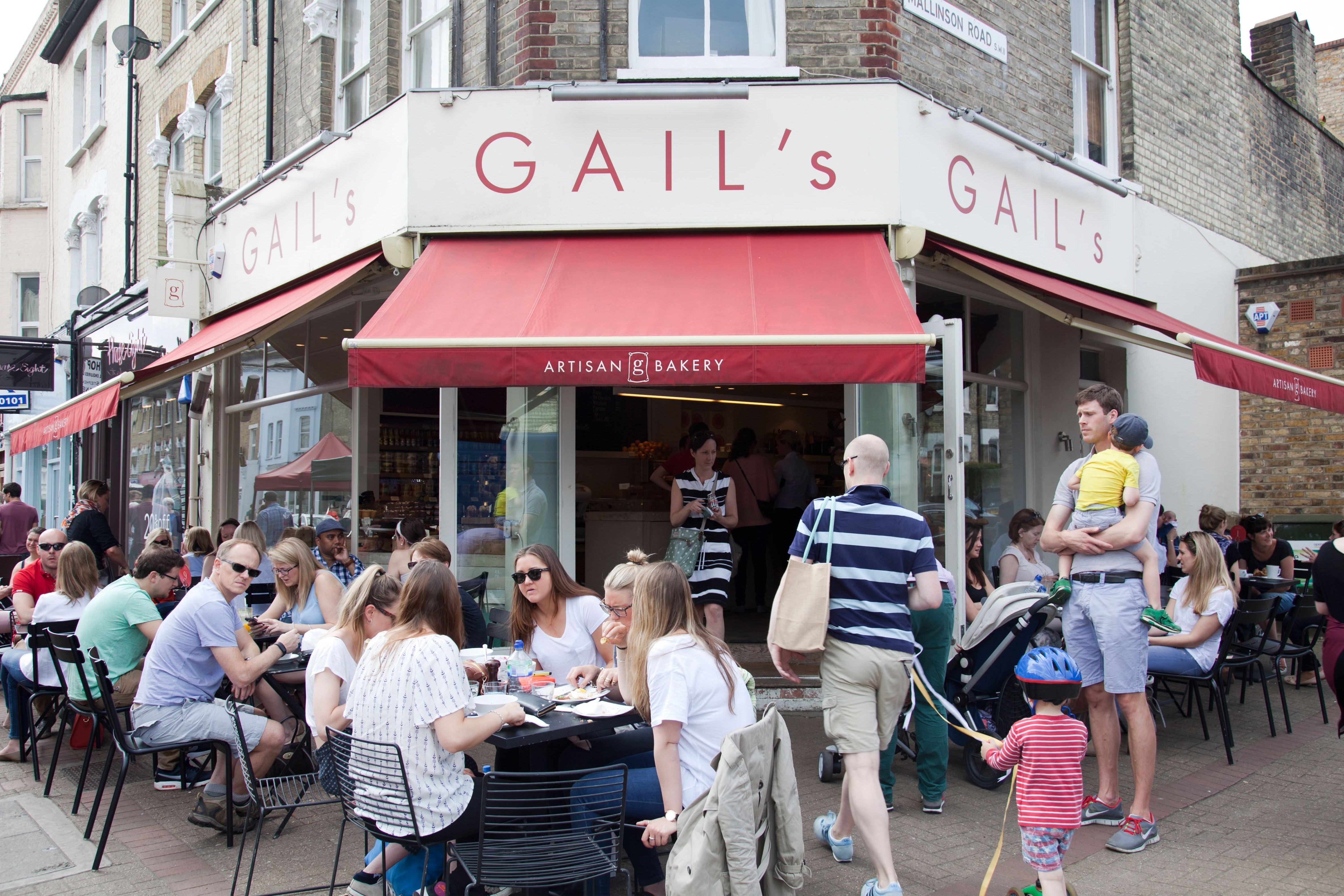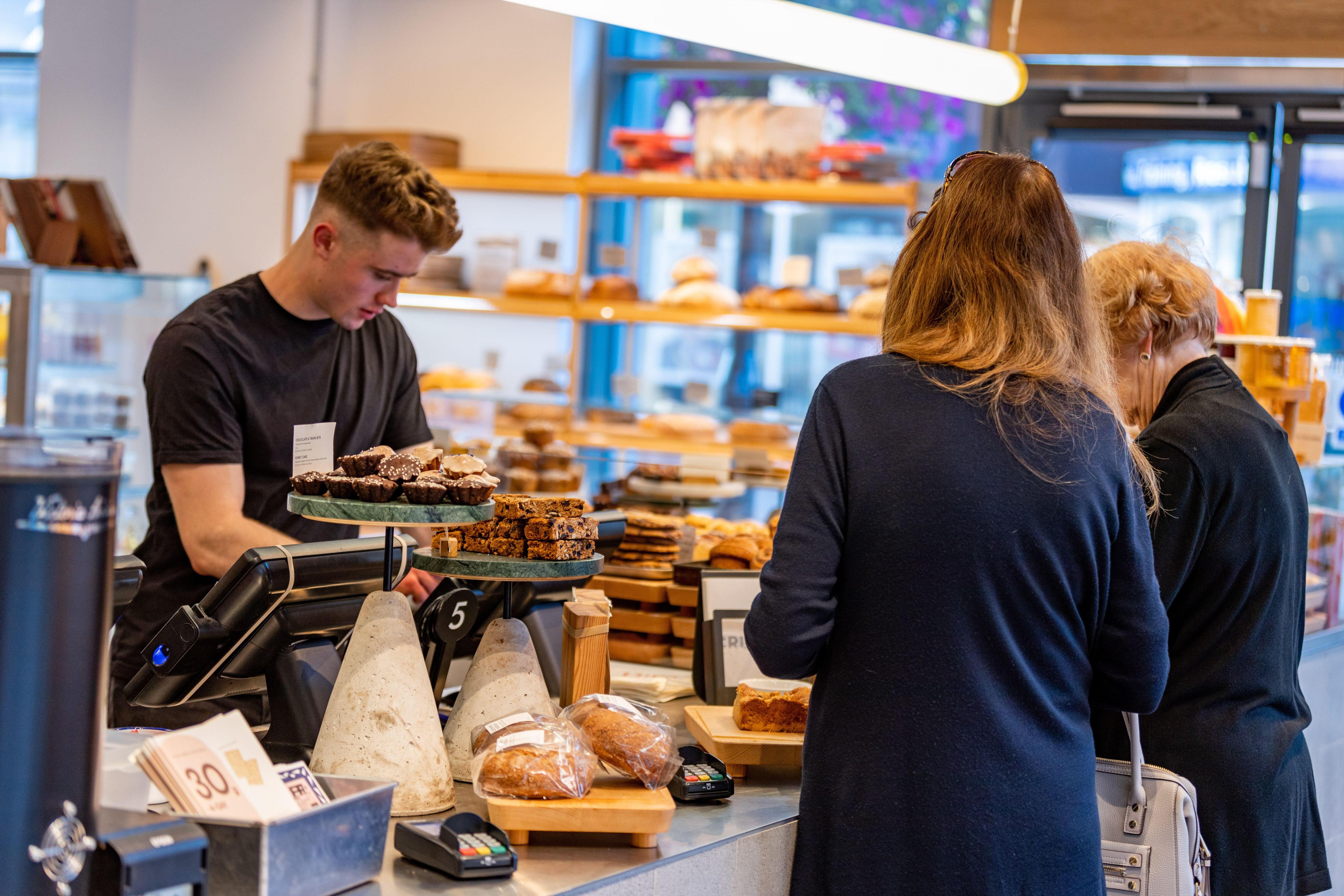Is Gail’s Bakery Valued at £500 Million? Inside the Popular Bakery Chain’s Growth Story
Gail’s Bakery, co-founded by Gail Mejia, has become a topic of debate in the UK food scene, including discussions about the quality of its coffee.
Mejia, who stepped back from the business over a decade ago, recently critically referred to Gail’s coffee as “shit” in an interview while in Portugal, according to news website Air Mail. However, current CEO Tom Molnar remains unphased by the remarks.
“She often says to me, ‘You haven’t messed it up,’” Molnar stated. “I know that she prefers a very different style of coffee—more traditional Turkish. Our blend is smoother.”
Despite the mixed opinions surrounding it (Mejia described the bakery as “insanely successful”), Gail’s has undeniably made a significant impact across the UK.
With 152 locations now operational, the chain continues to thrive, navigating the ongoing cost of living crisis with an influx of new openings. Last week, despite chilly weather, shoppers were seen lining up for Christmas favorites, including a six-pack of mince pies priced at £16 and a Pistachio & Lemon panettone for £35.
“I’m aware it isn’t cheap, but it isn’t grossly expensive either,” Molnar remarked.
Reports suggest that Goldman Sachs has been enlisted to explore a sale of Gail’s for an estimated £500 million. What factors contribute to Gail’s remarkable success? Could it truly be valued at this sum?

The inaugural Gail’s Bakery was launched in 2005 on Hampstead High Street in northwest London and stemmed from The Bread Factory, which continues to supply numerous high-end establishments since its inception in the early 1990s.
Unlike speedy expansions of competitors like Costa and Starbucks, Gail’s growth began to surge as the UK emerged from the pandemic.
Mejia’s exit from the business occurred when Luke Johnson, former chairman of Patisserie Valerie, purchased her stake in 2011. Johnson still serves as chairman, though a majority stake was shifted to American private equity firm Bain Capital in 2021.
Recognizing that consumers had accumulated savings during lockdowns, Molnar understood that the demand for quality food sourcing was rising. Supermarkets catering to the affluent had begun noticing this trend, and Gail’s positioned itself perfectly to fill the market gap.
Every day, fresh bread is produced in one of five primary bakeries located in Hendon, Milton Keynes, St Albans, Manchester, and Bath. Deliveries arrive at cafes between 4 AM and 6 AM, with staff using their keys to access the locations if they arrive early.
Each store, other than the South Kensington site, is equipped with one or two dough prover cabinets and ovens. Fresh pastry dough is delivered and baked after a proving period, such as a croissant which takes around two hours and twenty minutes.
“We operate without freezers; everything is fresh,” Molnar clarified. He contrasted this with other chains that may use frozen pastries, stating, “They may taste amazing initially, but these often contain preservatives and spoil quickly.”
A seasoned executive from the hospitality sector commented that “Gail’s has resonated remarkably well in the post-pandemic environment, appealing greatly to middle-class consumers in suburban London.”
Kien Tan, senior retail advisor at PwC, noted the chain’s fortunate timing, while also emphasizing their insightful market positioning for higher quality bakery products.
“They have capitalized on the vacancy of many high street shops, but their strategy has been to open in affluent neighborhoods with a relatable concept,” he remarked.
Molnar believes that the decline in retail foot traffic has worked to his advantage. “Numerous vacant high street locations present attractive rental terms from landlords, which have been essential for our growth,” he explained.
These empty spaces, predominantly former banks, have historical value. “The very first day we opened in Cobham, I chatted with a man who mentioned it had previously been a bakery,” Molnar recalled.
While the British public generally supports success, excessive achievement can evoke backlash. Some residents in Walthamstow have petitioned against Gail’s presence, arguing it threatens local business traditions.
False claims about the chain’s ownership due to Mejia’s background resulted in criticism rife with antisemitic undertones. Mejia described the backlash as “mental” during a recent interview.
Despite these challenges, the company’s growth trajectory remains strong. However, the valuation of £500 million raises questions amidst escalating costs and tax implications. When Bain acquired its stake in September 2021, Gail’s had a market valuation of £200 million.

An investment banker specializing in restaurant deals expressed skepticism about reaching such a high valuation before upcoming hikes in national insurance contributions and minimum wage rises take effect in April.
A competitor remarked, “I don’t understand how they’re reaching that number?” A veteran hospitality figure cautioned against selling at this moment, although acknowledged Gail’s potential for continued growth.
Businesses are generally valued based on earnings multiples. With reported earnings of £32 million for the year ending February 2023, a £500 million valuation would reflect over 15 years of adjusted profits.
For comparison, Loungers accepted a £300 million offer, reflecting nine years of earnings, while The Restaurant Group sold for a similar valuation based on the same multiple last year.
Ultimately, the valuation of Gail’s will hinge not on historical performance but future profit potential. Given its rapid expansion, a valuation of half a billion pounds could be attainable.
“We now need to see if the business can sustain growth or if we’ve reached ‘peak Gail’s,’” remarked Tan, emphasizing the importance of new locations in cities like Bristol and Manchester as part of their strategy.
Molnar refrained from commenting on the ongoing sale discussions, stating plans to expand by opening 30-40 new bakeries in 2025, necessitating the recruitment of another 1,000 employees. He aims to achieve £300 million in sales next year.
However, he expressed concern regarding the impact of Rachel Reeves’ budget projections. Increases in employer national insurance contributions and the minimum wage could cost Gail’s an additional £1.5 million to £2 million.
As a result, Molnar indicated that prices may need to rise, although he is striving to mitigate this impact. How sensitive customers are to slight price increases remains uncertain.
“Profitable food production is not a straightforward business,” emphasized Molnar.
Yet, if the private equity stakeholders perceive Gail’s bakery to be worth half a billion, they may have a different outlook.




Post Comment